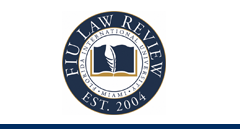Alternate Title
The Kincare Craze In Child Protection: Romanticism, Subterfuge, And Racial Separatism
Keywords
foster care, trans-racial adoption, child protection, kincare, termination of parental rights
Abstract
A deluge of federal and state legislation in recent years aims to channel maltreated children removed from parents’ custody into kin placements, responding to advocates for parents who claim this is categorically better for children than entering or remaining in foster care with biologically unrelated caregivers. The claim has romantic appeal, sufficient to beguile legislators. But the research on outcomes for children in different post-removal placements does not support it. In reality, motivations other than child welfare underlie the advocacy for this legislation. The core aim is to evade federal child-welfare mandates adopted in the 1990s and long condemned by parent advocates—namely, foster care time limits and the prohibition on race-matching in adoption. A longer-term objective for some is return to racial separatism in private life. This Article describes the quiet revolution now taking place in child welfare practice, debunks the research claims that kincare advocates make, and identifies harms to children that pro-kin policies are now routinely causing—in particular, disrupting attachment relationships that young children in the child welfare system have formed with long-term foster parents who wish to adopt them.
Recommended Citation
James G. Dwyer, The Kincare Craze In Child Protection: Romanticism, Subterfuge, And Racial Separatism, 19 FIU L. Rev. 1 (2025), https://doi.org/10.25148/lawrev.19.1.4.
Included in
Family Law Commons, Juvenile Law Commons, Law and Race Commons, Social Welfare Law Commons





